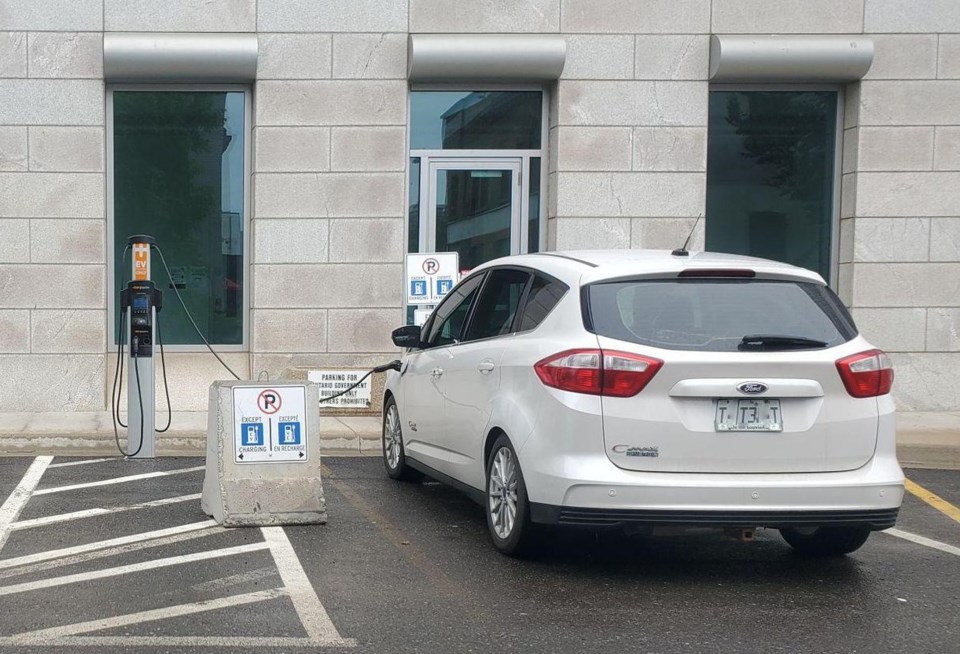THUNDER BAY — The Thunder Bay Community Economic Development Commission hopes to attract more takers for a program that provides a significant subsidy for establishing electric vehicle charging stations in the city.
The economic development commission on Monday announced the relaunching of the program, after falling short of the 130 chargers it initially anticipated would be in operation across the city by the end of last year.
At the time the program was launched, the CEDC said there were already 42 other chargers across Thunder Bay.
The total is now up to 86, as the Plug-in Thunder Bay program had committed funds for an additional 44 chargers at various locations as of Monday.
"We saw the employers and organizations in the city install more of the fast chargers than we were anticipating, and those come at a higher price point," project coordinator Kirsten Kabernick said. "So we were able to fund some of those chargers, and that decreased some of the quantity that we were anticipating in the program."
Kabernick said the CEDC had projected a larger uptake for lower-level, lower-cost charging units, but that didn't happen.
It received $500,000 from the federal government to operate the program last year
The initiative offers companies, institutions, entrepreneurs and property owners a contribution of up to 50 per cent of the cost of purchasing and installing Level 2 chargers or fast chargers.
It's meant to encourage the installation of chargers in public places, on-street, workplaces, multi-unit residential buildings and light-duty vehicle fleets.
Kabernick said the CEDC sees a need for more electric vehicle infrastructure in Thunder Bay, and "this program is a big incentive for organizations or businesses to look at installing chargers."
She was unable to provide pricing details.
"I can't talk about the individual price per charger just because it varies based on the level ... the price would range depending on the charger and the type of install and work needed at the site for the actual installation would drastically vary the cost as well."
The program is not intended for individual home installations.
Some of the installations done to date include car dealerships, other private businesses, and educational institutions.
"They recognize that EV charging is going to be the way of the future ... and being prepared with the infrastructure now will better prepare the city as a whole for that change when the time comes," Kabernick said.
The CEDC is now forecasting that 60 to 70 charging stations will have been funded by the program by the end of this year, which would bring the number of available chargers to between 102 and 112.
Applications will remain open until all the funds from Natural Resources Canada's Zero Emission Vehicle Infrastructure Program are committed.
The amount available in Thunder Bay this year has not yet been disclosed by the federal government.
"We are excited to continue with the program as it is a great way to bring more electric vehicle infrastructure to our community and encourage the adoption of lower-carbon transportation methods," CEDC CEO Jamie Taylor said.
NOTE: This story has been updated to clarify that there were already 42 charging stations in operation in Thunder Bay prior to the commencement of the Plug-in program in 2022, and that the program has added 44 more since its inception.
